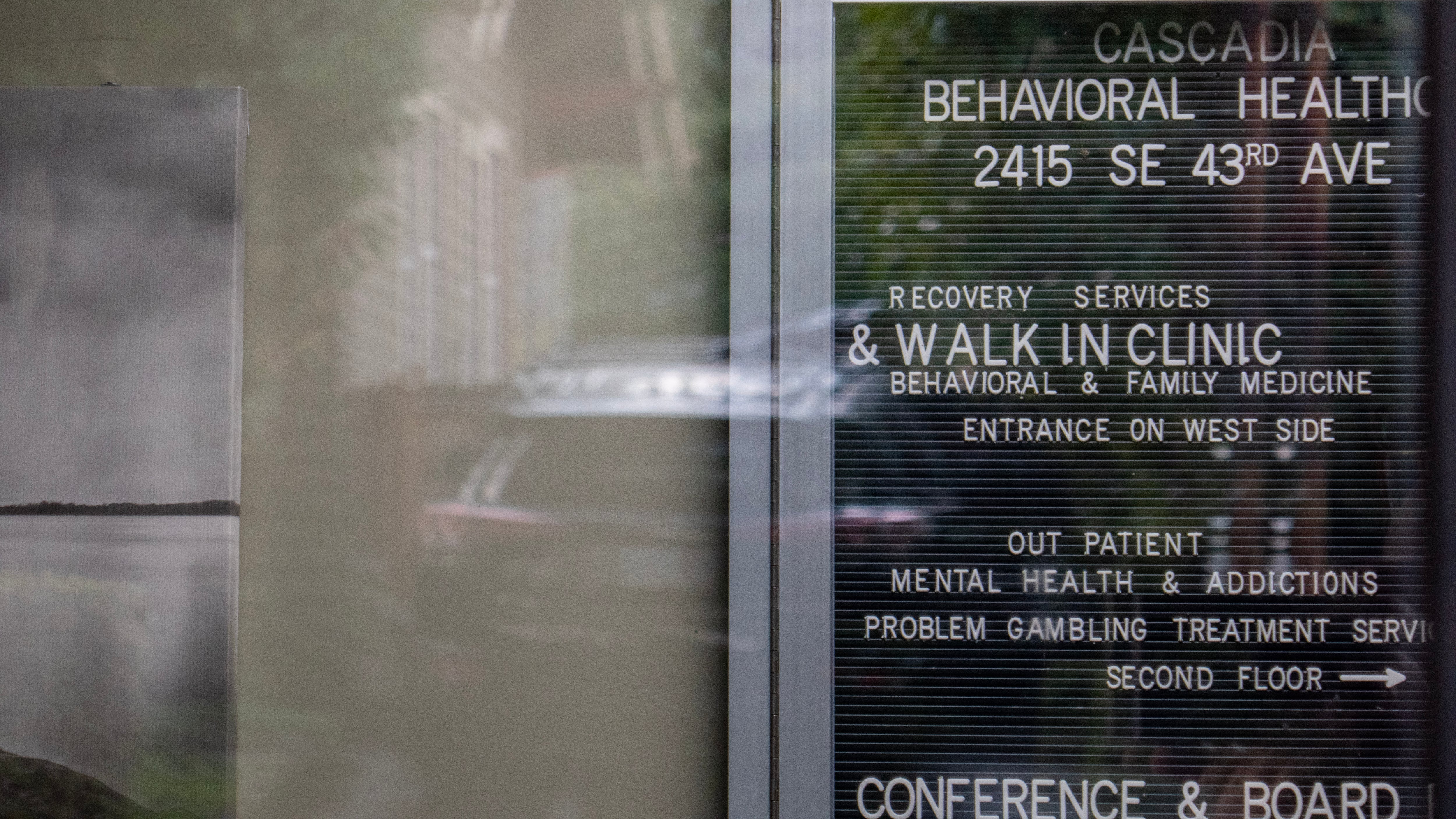Oregon made big news in 2020 when it became the first state to decriminalize possession of hard drugs like heroin, methamphetamine, cocaine and some opioids.
Voters passed Measure 110 in part because sponsors promised that drug treatment would do more to address the overdose crisis than jail time. To pay for the new approach, the measure took millions in cannabis tax revenue and directed it to treatment—well over $100 million a year.
People suffering addictions in Oregon need the money. The state ranks dead last in access to treatment, even though it has the second-highest per capita rate of substance abuse disorder after only Montana, according to the National Survey on Drug Use and Health for 2020.
Now, the House Committee on Economic Recovery and Prosperity is considering taking some of the money Measure 110 earmarked for treatment and redirecting it to law enforcement.
In the short legislative session that started Feb. 1, House members will consider a proposal to send $13 million in treatment money annually to the Oregon Criminal Justice Commission for grants to law enforcement agencies. It would direct another $3 million per year to community organizations chosen by the commission.
The move alarmed advocates for drug treatment.
“The voters were very clear,” said Tera Hurst, executive director of the Oregon Health Justice Recovery Alliance. “They want to see more money in services. They don’t want a law enforcement approach. They just said that 14 months ago. And now the Legislature is saying, `We’re gonna take money from health services and put it into law enforcement.’”
The change in funding is outlined in an amendment—requested by committee chairman John Lively (D-Springfield)—to House Bill 4016, which would authorize the Oregon Liquor and Cannabis Commission to refuse to issue cannabis licenses to new growers when supply begins to exceed demand, as it does now.
The amendment comes as communities in southwestern Oregon, especially, struggle to control illegal cannabis grow operations. Rep. Lily Morgan (R-Grants Pass) led off testimony on the bill with accounts of illegal growers forcing women to work in the pot fields by day and perform sex work by night, of workers kept as virtual slaves, sleeping on cardboard in hoop houses, and of growers intimidating citizens with gunshots.
Morgan described an end-of-harvest party that attracted 1,000 people, blocking roads. Sheriff’s deputies didn’t even attempt to break it up, she said.
Hurst says she understands the plight of workers who are coerced by illegal growers, and of Oregonians who feel threatened by cannabis cartels in their counties, but funds from Oregon’s marijuana tax already go to law enforcement based on a formula laid out by law. Taking money away from addiction services to fund more enforcement goes against the will of voters who wanted Oregon to try something new, treatment advocates say.
“This is a horrible idea,” said Monta Knudson, executive director of Bridges to Change, a treatment provider that operates 580 beds in five Oregon counties. Measure 110 is in its infancy and political leaders are already seeking to change its mission and rob it of resources, he says. “To reduce any amount of funding for treatment is just a dumb move.”
Another piece of legislation, Senate Bill 1541, could send as much as $60 million in cannabis tax revenue to Oregon State Police to help county sheriffs crack down on illegal cannabis cultivation. Each county sheriff would be guaranteed at least $500,000 per year. Counties with more illegal grow operations would get more.
The bill is sponsored by the most powerful Senate Republican, Minority Leader Tim Knopp (R-Bend). Dru Draper, a spokesman for the Senate Republicans, said the funding mechanism is likely to change. “We’re trying to leave the treatment money in there,” he said.
Drug treatment professionals remain wary of any attempt to divert cannabis taxes from recovery services.
“This money was supposed to be for people who were most impacted by the war on drugs,” said Julia Mines, executive director of Miracles Club, a Portland organization that manages apartment buildings for people in recovery and offers peer counseling.
Miracles Club got $213,000 in the first round of Measure 110 disbursements last spring. Mines hopes to get $2.4 million when grants are awarded later this month. That money would allow her to raise hourly wages for her frontline staff from $17 to as high as $25.
“We’d like to pay our people a living wage,” she said.
Updated at 5:50 pm: Lively says his amendment to HB 4016 won’t move forward.
“The issue raised is real, however a wide range of solutions are available to help address the challenges,” Lively says. “While I firmly support our law enforcement and their efforts to crack down on illegal cannabis grows, I respect Oregon voters and the decision they made in passing Measure 110. I support giving law enforcement the funds they need to address the illegal cannabis crisis, while not taking away from this critical source of funding for life-saving drug treatment and recovery services.”
Hearings on both bills will begin at 8 am Monday, Feb. 7.
